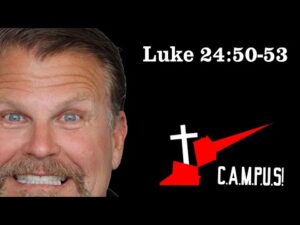
Luke 24:50-53 Bible Teaching
Yeshua's ascension in Luke 24 symbolizes his divine role; Shawn highlights Jesus' deification post-resurrection. Timothy aids Paul, addressing early church issues.

Verse by Verse Teachings is an in-depth, methodical study of the Bible led by Shawn McCraney. Launched in 2013, these teachings are dedicated to helping individuals understand every single verse scripture in its purest, most contextual form—free from institutional biases or doctrinal agendas.
Whether you’re new to the Bible or seeking deeper insights, these teachings will equip you to understand the text in historical, cultural and exegetical context – outside of the bounds of religious tradition.

Yeshua's ascension in Luke 24 symbolizes his divine role; Shawn highlights Jesus' deification post-resurrection. Timothy aids Paul, addressing early church issues.

Yeshua's teachings in Luke 24 emphasize free will, spiritual insight through scripture, the importance of clear biblical teaching, and the global mission of repentance and forgiveness.
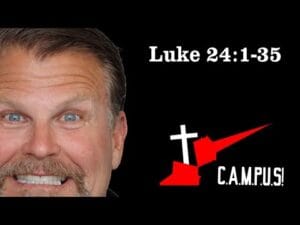
Shawn's teaching emphasizes Yeshua's resurrection as central to Christian faith, supported by Old and New Testament scriptures, post-resurrection appearances, and prophetic fulfillment.
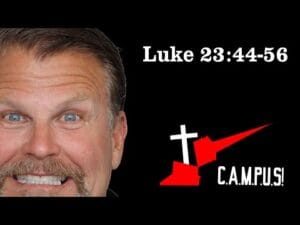
Shawn's teaching highlights the aftermath of Jesus' crucifixion, the role of women like Mary Magdalene, the fulfillment of prophecies, and the significance of the resurrection.
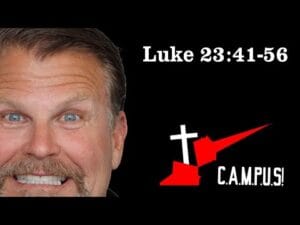
Shawn's teaching on Luke 23:41-43 highlights the penitent thief's faith, Jesus' assurance of paradise, the crucifixion's darkness, and the fulfillment of prophecy.
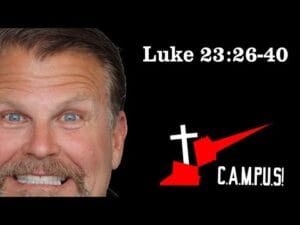
Simon helps Jesus carry the cross, highlighting communal faith support. Crucifixion context, Jesus' warnings, humility, forgiveness, and spiritual kingship emphasized.

Shawn explores Pilate's dilemma, Barabbas's release, Pilate's wife's dream, and the crowd's role in Jesus's crucifixion, emphasizing Jesus as ultimate truth and suffering servant.

Jesus accused of rebellion, not paying tribute, claiming kingship; Pilate, Herod find no fault. Jesus' kingdom not earthly. Pilate proposes release, tension persists.

Shawn's teaching covers Judas' betrayal, Peter's denial, Jesus' peaceful mission, and unjust trial, emphasizing love, peace, and dedication over violence.

Jesus warns Peter of Satan's challenge, prays for his faith, and highlights his future role. Peter's true conversion occurs at Pentecost. Jesus instructs disciples to prepare for trials, emphasizing active partnership with God. In Gethsemane, Jesus prays, submits to God's will, and is strengthened by an angel. Atonement is linked to the crucifixion, not Gethsemane. The Critical Text influences modern translations, with debates on legitimacy of certain passages. Jesus, as "Son of Man," highlights humility, and Judas betrays him with a kiss.
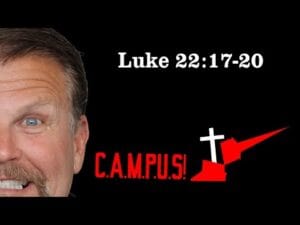
The teaching covers the Last Supper, Communion's symbolism, critiques its institutionalization, emphasizes spiritual over ritualistic faith, and highlights humility and service.

Shawn's teaching reinterprets the Last Supper as a pre-Passover meal, emphasizing Jesus as the symbolic Passover lamb, aligning with John's timeline and theological implications.

Shawn's teaching highlights Jesus' prophecy of end times, emphasizing signs like Jerusalem's fall, urging vigilance, and contrasting Judas' betrayal with true repentance.

Shawn's teaching covers Jesus predicting the temple's destruction, warning against false messiahs, and urging endurance through persecution. It discusses eschatological interpretations, historical fulfillment of prophecies, and emphasizes the relevance of Jesus' warnings to the disciples' era, not the world's end.

Jesus refutes Sadducees on resurrection, questions Messiah's identity, critiques religious leaders' exploitation, highlights widow's sacrifice, and emphasizes humility.

Shawn's teaching on Luke 20:15-36 covers the parable of the vineyard, Jesus' rejection, authority, resurrection, and the transfer of God's kingdom to receptive Gentiles.
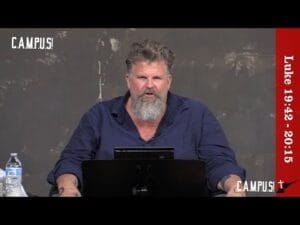
Jesus wept over Jerusalem's failure to recognize peace, prophesied its destruction, and emphasized a spiritual kingdom beyond ethnic lines. He cleansed the temple, challenged authority, and used parables to highlight Israel's rejection of prophets and the Messiah.

Jesus' parable teaches the Kingdom of God unfolds in stages, emphasizing wise use of entrusted resources for spiritual growth, leading to rewards and God's kingdom establishment.
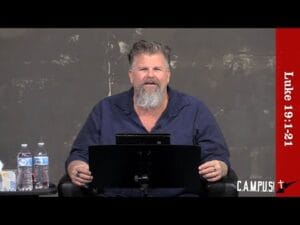
Zacchaeus, a wealthy tax collector, seeks Jesus, leading to his repentance and generosity. Jesus' parable emphasizes stewardship and accountability. Shawn contrasts Jewish and Gentile repentance, comparing parables in Matthew and Luke, focusing on judgment and the Kingdom of God.

Jesus' prophecy of suffering, death, and resurrection fulfills over 300 Old Testament prophecies. Disciples' misunderstanding highlights need for spiritual discernment.